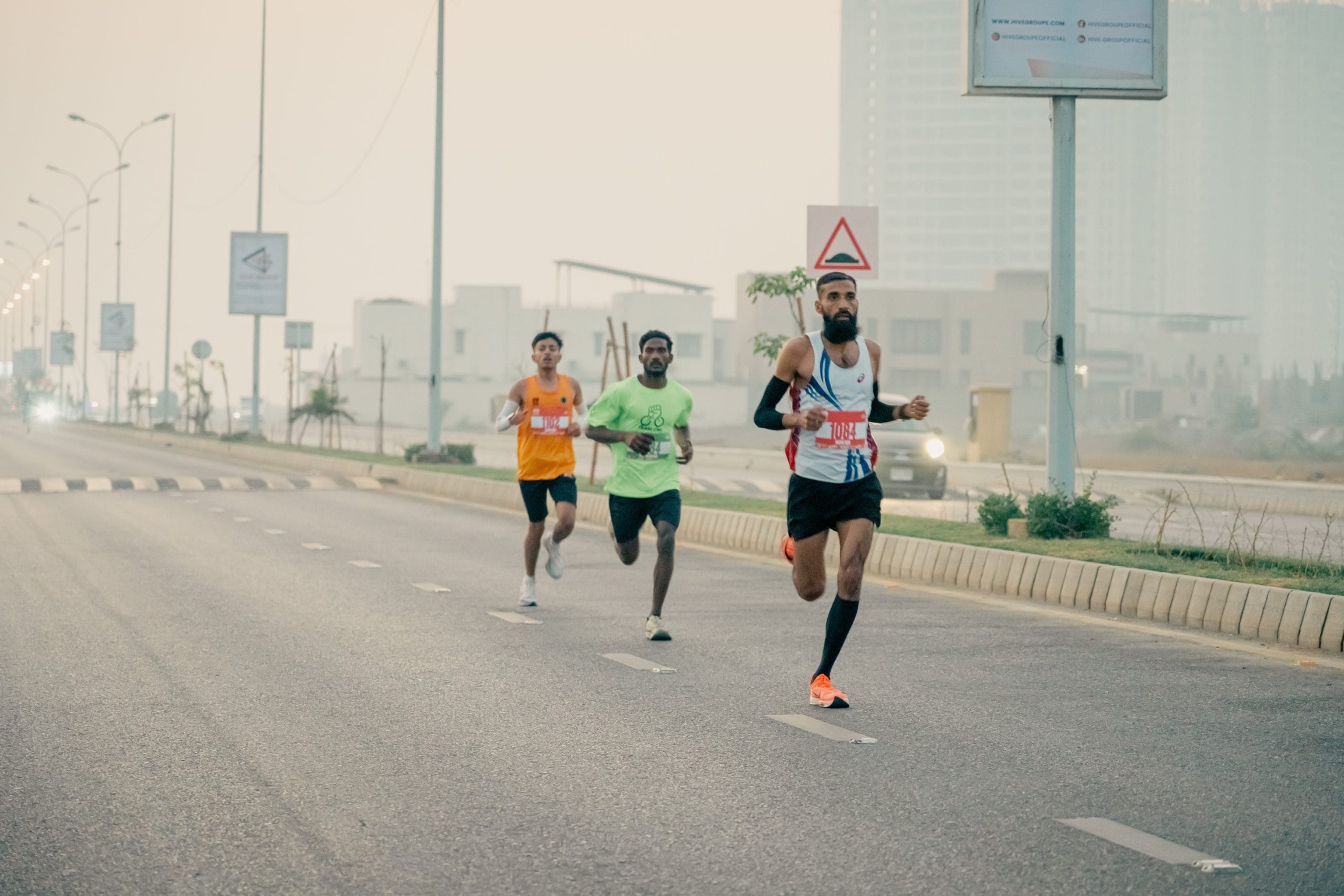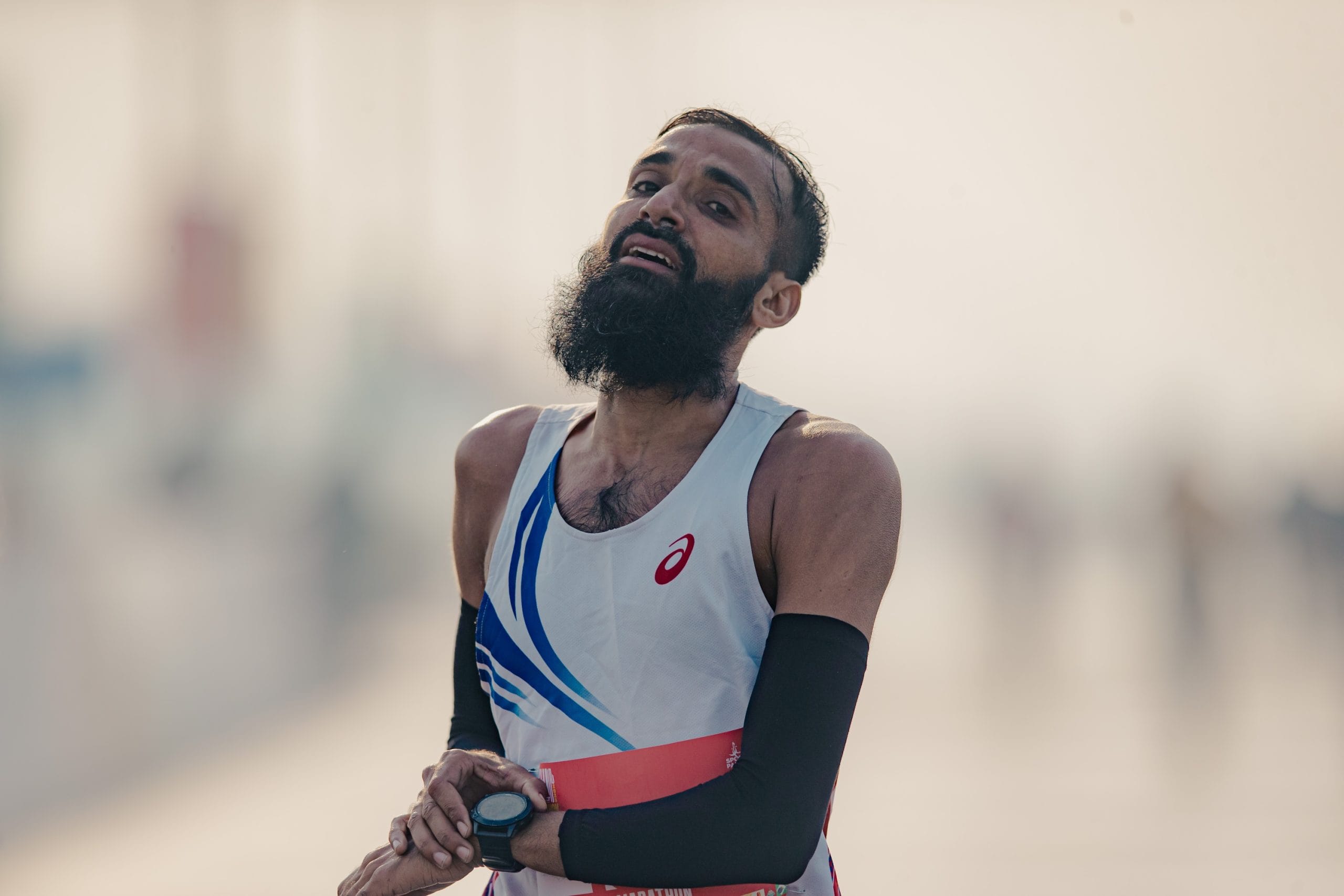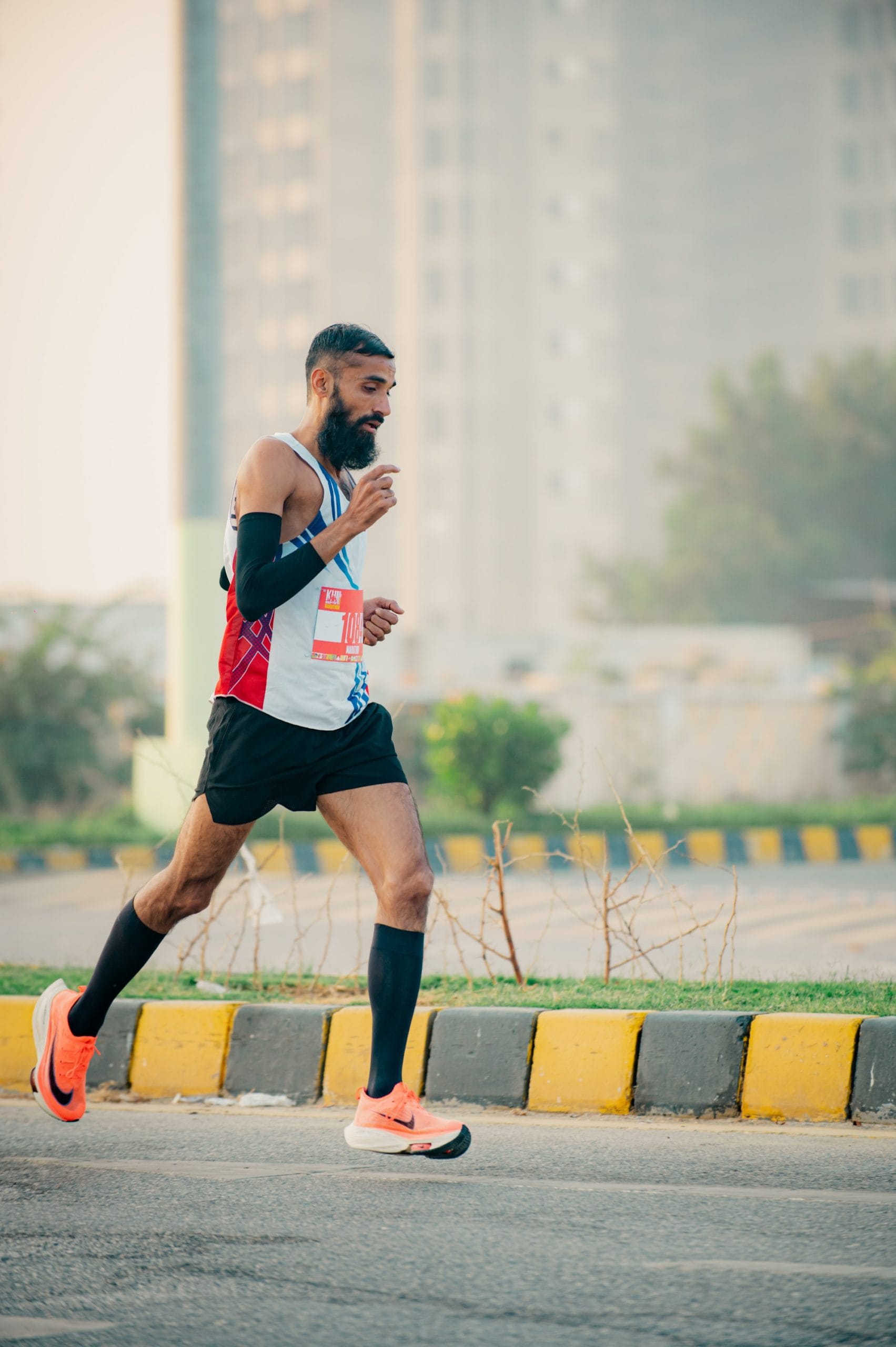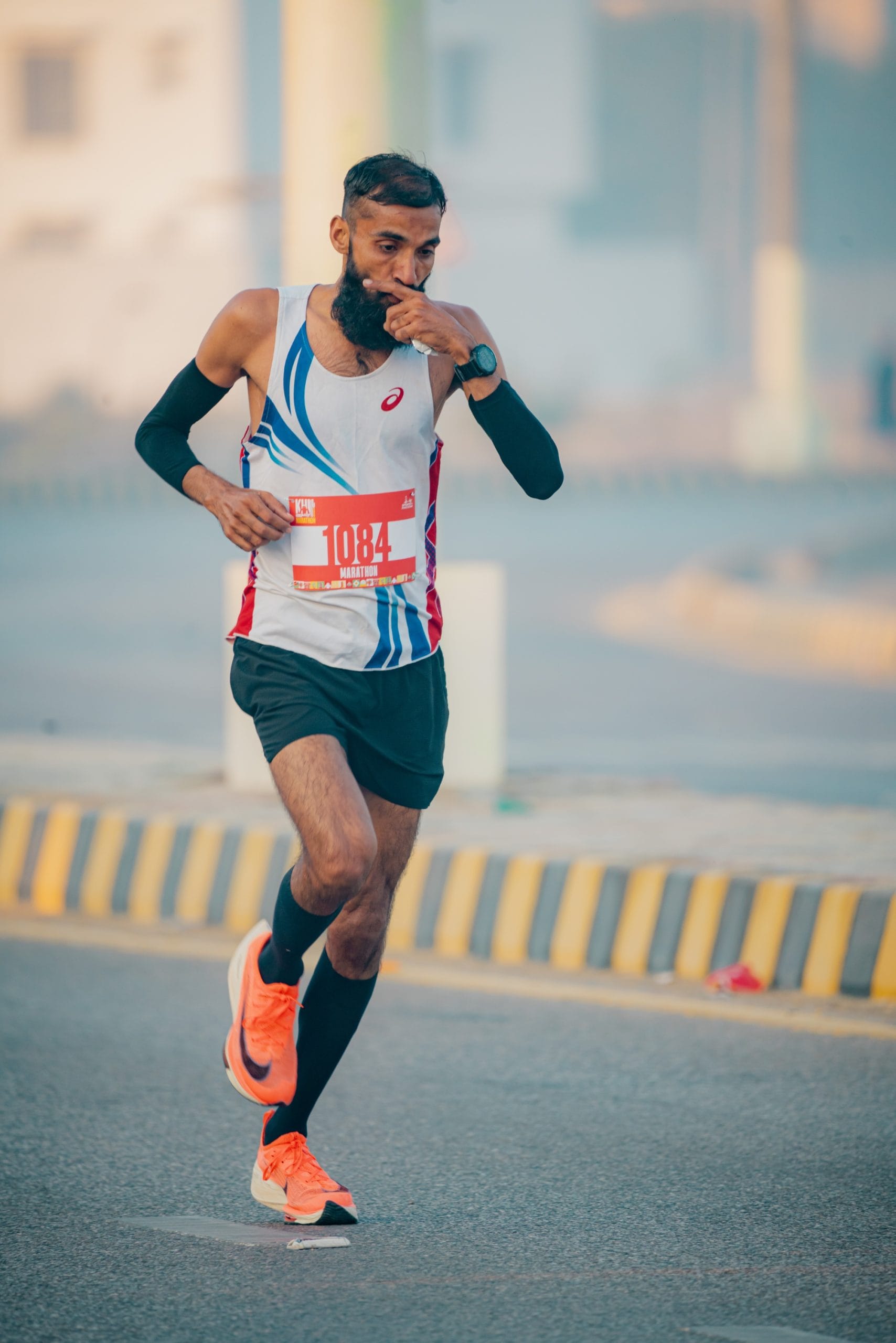.

It was his father — a former national-level silver medalist in cycling — who nudged him in a different direction. “He told me football is a sport where eleven players have to work together to win,” Amjad recalls. “He said, pick something individual — cycling, boxing, or athletics — where your own hard work defines your success. And in which you don’t have to depend on anyone else.” The advice stuck. With his tall frame and the stamina he had built from football, Amjad decided to chase the path of an individual athlete, one where every stride would depend solely on him.”
The transition wasn’t easy. Coming from a working class background, resources were scarce and opportunities even rarer. At first, he trained on his own, running in open fields and city streets, using determination as his only tool. But his potential caught the eye of Sir Taleb, a coach at Karachi’s Abdul Sattar Hockey Stadium, who began to train him formally. “Having a proper coach changed everything,” says Amjad. “I started to understand structure — the right way to train, to rest, to recover.”
“Years later, that structure and dedication paid off in spectacular fashion. In November 2024, Amjad became Pakistan’s fastest finisher at the Istanbul Marathon, completing the 42-kilometre course in 2 hours, 49 minutes, and 29 seconds. The course, known for its challenging hills and scenic route across two continents, pushed him to his limits. “Istanbul was special,” he says. “It tested everything — strength, strategy, and faith.”

That performance gave him confidence to aim higher. Two months later, at the Karachi Marathon, Amjad took on a flat course under cool, ideal weather conditions. The result was one of the most emotional finishes of his life. “If you look at my photos, I was crying,” he says, smiling. “I thought I’d finish in 2 hours 42 minutes — but I did even better. I finished in 2 hours 40 minutes. That was the best race of my life.”
For Amjad, the path has never been straightforward. He speaks openly about the struggles that come with being an athlete in Pakistan — financial hardship, lack of institutional support, and the constant challenge of balancing work, family, and training. Yet, through every obstacle, his commitment has remained unshaken. “I’ve trained from the heart,” he says simply. “When you do something sincerely, Allah shows you the results.”
Today, Amjad continues to represent Pakistan in national and provincial competitions, university and railway games, and major marathons. Even as he recovers from a recent injury, his focus remains unwavering: to improve his time, to run stronger, and to inspire others. “Inshallah, I’ll come back better than before,” he says. “Running has taught me patience and humility. You fall, you rise, and you keep moving.”

His advice to aspiring runners reflects that same philosophy. “Take it step by step. Don’t compare yourself to others. Progress takes time. Find a good coach, stay disciplined, and believe in yourself.”
For Amjad Ali, running is more than a sport — it’s a mirror of life itself. Every race is a test of endurance, not just of the body but of the spirit. From the football grounds of Karachi to the finishing lines of international marathons, his story is a testament to what passion, perseverance, and faith can achieve. And as he dreams of new races and faster times, one thing is certain — Amjad Ali is still running, and his journey has only just begun.


The Karachi Marathon is more than a race. It is a tribute to the City of Lights. This Event is committed to inspiring activity.
All rights reserved by Sports in Pakistan.